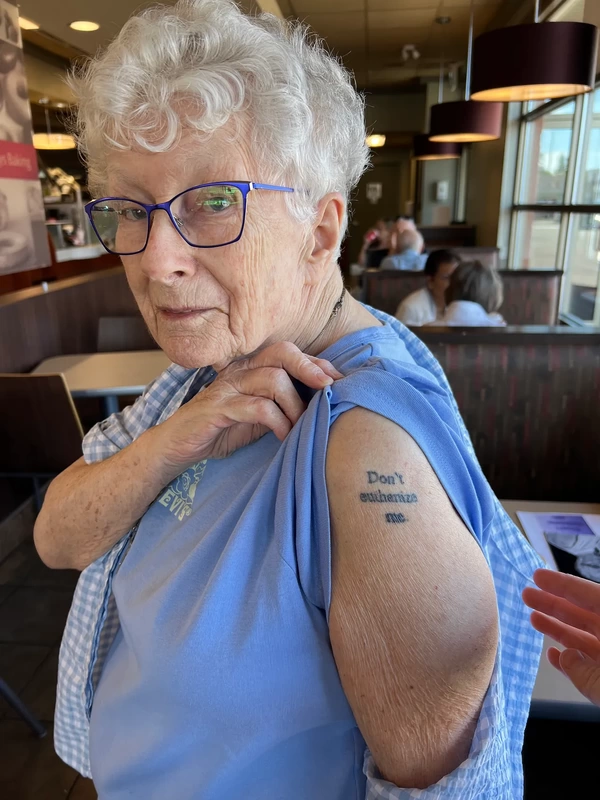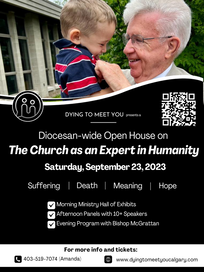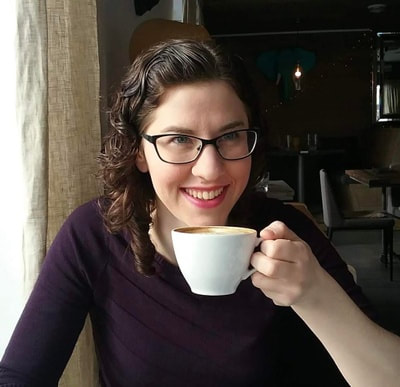Dying to Meet You Like Christine, the legalization of euthanasia affected me very much as well. I started to think: Now, we don’t so much have a culture of death as we seem to have death without culture. I also began to wonder how we can bring cultural renewal to death and dying and restore its meaning and proper significance to our lives. And so, on January 1, 2021, I made a new year’s resolution to blog about death and dying every single day for an entire year in a way that was ultimately edifying. To my surprise, writing each post became a highlight of my day. That blog “DyingToMeetYou.ca” (archived here) got more than 15,000 unique visitors and, more importantly, led people to take action in their own lives in ways I did not expect or anticipate. I continue to blog, now at DyingToMeetYou.com. Always on the search for interesting stories, this is how I met Christine. Born and raised in England, Christine was four when the Second World War began, and ten when it ended. She remembered the mandatory blackouts as well as classmates who lost parents during the war, saying: “There were German bombs dropping down and we couldn’t let out a chink of light. The civilian attitude was to obey rules to preserve life. And, particularly given the constant threat, the grownups I knew carried cards that said: 'I’m a Catholic. In case of an accident, call a priest.'" While the overall wartime context certainly heightened Christine’s sensitivity to suffering, there were many personal experiences of suffering throughout this octogenarian’s life, too: “I know that suffering is a part of life, it’s a part of living,” Christine told me. “And I believe that everybody suffers in one way or another. I watched my mother suffer and die from ALS when she was 34. I suffered myself when she died and I was only 10. At the time, in the 1940s, it was not expected that children should go to funerals and my siblings and I were not told anything about our mother’s death until a few months later.” When she became an adult, Christine seized the opportunity to move to Canada and settled in a small village in Saskatchewan to teach and eventually met and married a local farmer. On discovering that they were unable to have children, they chose to adopt. She had been particularly inspired to adopt by St. Thomas More’s example, which she read about in a book entitled, Two Fortunate Orphans. Over the years, the couple adopted seven children – including three Indigenous children – all of whose birth mothers had specifically requested a Catholic upbringing for them. Asked what she thinks has changed with respect to the modern inability to contend with the trials of life, Christine told me, “There was so much suffering and death that people would hardly think of cutting life short intentionally. But now, the Western world has become more and more affluent and suffering is not so apparent. People feel entitled to have a life based on F-U-N. It’s got to be fun or else it’s not worth it.” “We always ask the children, ‘Did you have fun?’ And adults tell each other, ‘Oh, that was such fun!’ Fun has become the goal of life. But life isn’t always fun; life has suffering. Life is a pit stop on the way to heaven.” And so, with the nationwide legalization of euthanasia in Canada, Christine remembered those wartime cards to “Phone a priest” and briefly considered carrying a card in her wallet that would say, “I’m a Catholic, don’t euthanize me.” “But,” explained Christine, “knowing myself, I needed something more solid than a card because I traditionally lose things. I decided that a tattoo would last me until my death and would be a permanent feature.” And so, Christine went to get tattooed and her kids came to watch. The Church as an Expert in Humanity Loneliness, increased cost of living, mental health crises, alienation amidst grief and loss — these are just some of the social issues of our time that lead some to consider suicide or euthanasia. And, while the crises are great, we the Church are prepared to meet them through ministry, accompaniment, and our confidence in the power of God to overcome even death. When Pope Paul VI addressed the United Nations, he said that the Church was present there as “an expert in humanity.” Now, the Compendium of the Social Doctrine of the Church also states, “As an expert in humanity, “[the Church] is able to understand man in his vocation and aspirations, in his limits and misgivings, in his rights and duties, and to speak a word of life that reverberates in the historical and social circumstances of human existence.” But what does that look like concretely? How are we doing it? Is our witness credible? Are we sufficiently present?
It has been several years since Christine got the tattoo, so I asked Christine if she has had any regrets at all about it. “Initially, I thought about getting the tattoo across my chest, but given the number of people who ask to see it, it’s good I went with my arm instead!” she chuckled. If you want to hear more from Christine, attend the Evening Program - come and listen to her in person (she’s one of the speakers) at the Diocesan-Wide Open House Event on “The Church as an Expert in Humanity” event on Sep. 23! Be sure to check out the event website and register here!
4 Comments
Wayne Heather
9/11/2023 09:04:18 am
That was an inspiring story.
Reply
Rob Henderson
9/11/2023 11:35:38 am
Excellent article and very timely in the pursuit a wholesome worldview, not "death without culture ".
Reply
Lawrence
9/11/2023 12:33:10 pm
May God richly bless you.
Reply
PLEASE SEND TO [email protected] SHE"S an active CWL member
9/12/2023 07:38:14 pm
Exceedingly important for EVERYONE!!!!!!!
Reply
Your comment will be posted after it is approved.
Leave a Reply. |
Author
Catholic Pastoral Centre Staff and Guest Writers Archives
July 2024
Categories
All
|



 RSS Feed
RSS Feed